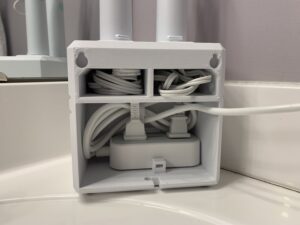Looking to keep your home safe from potential fires? One key element you can’t overlook is the smoke detector. These reliable devices serve as our round-the-clock guardians, detecting smoke and alerting us to potential dangers. But have you ever wondered what batteries are in smoke detectors? It’s an important question to ponder, as the battery plays a critical role in keeping the detector operational. In this article, we’ll delve into the world of smoke detector batteries, providing you with all the essential information you need to ensure your home is safeguarded. So let’s jump right in!
What Batteries are in Smoke Detectors
Smoke detectors are an essential safety device found in homes, offices, and public buildings. These devices are designed to detect smoke and raise an alarm, allowing people to escape from potential fires. To ensure that smoke detectors function properly and provide reliable protection, it is crucial to understand what batteries are used in them. In this article, we will explore the different types of batteries commonly found in smoke detectors and discuss their characteristics and advantages.
1. Alkaline Batteries
One of the most commonly used batteries in smoke detectors is the alkaline battery. Alkaline batteries are affordable, readily available, and provide a reliable power source for smoke detectors. They are also known for their long shelf life, making them an excellent choice for devices that may not be used frequently.
Alkaline batteries are known for their high energy density, which means they can store a large amount of energy in a compact size. This is important for smoke detectors as they need a battery that can power the device for an extended period. Alkaline batteries are typically available in sizes such as AA or AAA, which are compatible with most smoke detectors.
Advantages of Alkaline Batteries:
– Affordable and widely available
– Long shelf life
– High energy density
– Compatible with most smoke detectors
2. Lithium Batteries
Lithium batteries are another popular choice for smoke detectors due to their superior performance and extended lifespan. These batteries are known for their high energy density, making them ideal for devices that require long-lasting power. They are also lightweight and have a low self-discharge rate, ensuring they are ready to use whenever needed.
Some smoke detectors are specifically designed to use lithium batteries due to their unique advantages. These batteries are more expensive than alkaline batteries but are worth considering for their longevity and reliability. Lithium batteries come in various sizes, including 9V, AA, and CR123A, to accommodate different smoke detector models.
Advantages of Lithium Batteries:
– High energy density and long lifespan
– Lightweight and low self-discharge rate
– Ideal for devices requiring long-lasting power
– Available in different sizes for compatibility
3. Rechargeable Batteries
Rechargeable batteries are gaining popularity as a more environmentally friendly and cost-effective option for powering smoke detectors. These batteries can be recharged multiple times, eliminating the need for frequent battery replacements and reducing waste. Rechargeable batteries are available in different chemistries, including nickel-metal hydride (NiMH) and lithium-ion (Li-ion).
When choosing rechargeable batteries for smoke detectors, it is essential to consider their capacity and voltage. Smoke detectors typically require batteries with a specific voltage to function correctly. Rechargeable batteries may have a slightly lower voltage compared to disposable batteries, so it’s crucial to select ones that meet the voltage requirements of your smoke detector.
Advantages of Rechargeable Batteries:
– Environmentally friendly and cost-effective
– Can be recharged multiple times
– Reduce waste from disposable batteries
– Available in different chemistries
4. Other Specialized Batteries
In addition to alkaline, lithium, and rechargeable batteries, there are some smoke detectors that use specialized batteries. These batteries are designed to meet the specific power requirements of certain smoke detector models. Here are a few examples:
- Sealed Lead Acid (SLA) Batteries: These batteries are commonly used in smoke detectors connected to a building’s electrical system. They provide backup power in case of a power outage.
- NiCad Batteries: Nickel-cadmium batteries are sometimes used in older smoke detectors but are less common today due to their lower energy density and memory effect.
When choosing batteries for specialized smoke detectors, it is crucial to refer to the manufacturer’s instructions or consult a professional to ensure you select the right battery for your specific device.
Understanding the different types of batteries used in smoke detectors is crucial for maintaining optimal performance and ensuring the safety of your home or workplace. Alkaline batteries offer affordability and widespread compatibility, making them a reliable choice for most smoke detectors. Lithium batteries provide superior performance and extended lifespan, making them a suitable option for those seeking long-lasting power. Rechargeable batteries offer an environmentally friendly and cost-effective solution but require careful consideration of voltage requirements. Lastly, some smoke detectors use specialized batteries to meet specific power needs.
Choosing the right battery for your smoke detector is essential for reliable and uninterrupted operation. Remember to check the manufacturer’s instructions or consult a professional when in doubt. By selecting the appropriate battery and regularly testing and replacing it as needed, you can ensure your smoke detector is always ready to provide early warning in the event of a fire. Stay safe!
Frequently Asked Questions
What type of batteries are used in smoke detectors?
Smoke detectors typically use either 9-volt batteries or AA batteries.
Can I use rechargeable batteries in my smoke detector?
It is generally recommended to use non-rechargeable batteries in smoke detectors for optimal performance and reliability. Rechargeable batteries may not provide a consistent power supply and may need frequent recharging.
How long do the batteries in a smoke detector last?
The lifespan of batteries in a smoke detector can vary depending on factors such as the brand of batteries and the frequency of false alarms. On average, non-rechargeable batteries can last anywhere from 6 months to a year, while rechargeable batteries may require more frequent replacement.
How can I tell if the batteries in my smoke detector need to be replaced?
Most smoke detectors have a low battery indicator that emits a chirping sound at regular intervals when the batteries are running low. Additionally, some models may have a visual indicator, such as a flashing light, to signal that the batteries need replacement.
Are there any specific battery brands that are recommended for smoke detectors?
There are several reputable battery brands available in the market that can be used in smoke detectors. Some popular options include Duracell, Energizer, and Panasonic. It is important to choose high-quality batteries to ensure reliable performance in case of an emergency.
Final Thoughts
Smoke detectors are an essential safety device in every home, and understanding what batteries are in smoke detectors is crucial. The most common batteries used in smoke detectors are 9-volt alkaline batteries or lithium batteries. These batteries provide reliable power to ensure the functioning of the smoke detector in detecting and alerting occupants of a potential fire. It is important to regularly check and replace these batteries to maintain the effectiveness of the smoke detector. By knowing what batteries are in smoke detectors, you can ensure the proper maintenance and reliability of this life-saving device.



